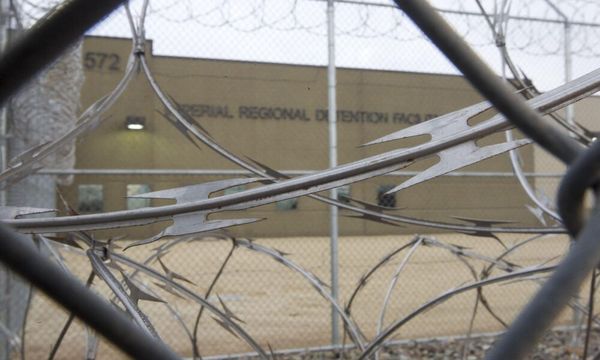
The government is pressing ahead with its overhaul of workplace laws despite what it calls “breathless hysteria” about unions extorting businesses and the Coalition promising to oppose them at every step.
Consultation begins only this week on the details of promised changes to the system used for negotiating workplace pay and conditions, but a bill is expected to be introduced to Parliament by the last week of October or November.
The most contested change is to widen current laws that only allow workers to negotiate with one employer at a time to allow deals to be struck with multiple employers.
The lobby representing one million Australian small businesses reached an in-principle agreement with unions to include multiple employer bargaining as part of a review to streamline employment red tape.
Dark warnings
The Coalition has condemned the laws in advance of the consultations saying they would expose businesses to intimidation and a return to the “dark ages” and the shutdown of parts of the economy as a negotiating tool.
“Mr Albanese is paying his paymaster in full but at the expense of the Australian people,” shadow employment minister Michaelia Cash told Sky News on Sunday.
“It does need to be made a criminal offence for any person to in any way intimidate, bully or harass a small business into a negotiated agreement.
“The last thing small businesses in this country want is a union thug turning up on their doorstep and pressuring them into doing something they don’t want to do.”
After a decade of nil growth in wages, backers of the reform say limiting workers’ negotiating power to a single workplace stacks the deck against them.
Employment Minister Tony Burke says the list of those disadvantaged by the current system of enterprise bargaining includes ‘‘small business, women in the care and community services sectors, and First Nations people’’.
‘‘The agreement-making system is broken,’’ he said. ‘‘Business and unions agree we need a new approach.’’
The Coalition and some in business paint a reverse picture: That unions could make employers sign up to agreements they did not want to, backed up by the threat of bringing down industries by going on strike.
Skills Minister Brendan O’Connor said no changes would be made to laws about industrial disputes, which had been steadily declining regardless of whether workplace bargaining involved one or more employers.
“The breathless hysteria about massive disputation happening because we use the new vehicle to bargain is not borne out by the facts,” he said on Sunday.
‘‘We’ve seen collective bargaining halve in a decade, and that has led to the lowest wage growth of any decade in living memory.”
Limiting the potential breadth of industrial action is shaping as a key demand from big businesses, such as Qantas, who have sounded warnings over the reforms.
Dispute-driven consensus?
Strikes have declined to historic lows worldwide but it is widely agreed Australian law has become particularly restrictive and made it very difficult for workers to strike.
Other business groups have turned on the small business lobby and called for collective action in the face of a plan by the ACTU to pick off vulnerable employer groups and get them to consent to the plans.
Business Council of Australia President Tim Reed said the group was concerned about any changes’ potential impact on “innovation, supply chains, industrial action and the overall complexity of the system.”
The reforms will also include a simpler version of the Fair Work Act’s better off overall test, which stops agreements passing unless they meet even hypothetical applications of that standard.
Better access to flexible work arrangements and unpaid parental leave are also planned.
Opposition Leader Peter Dutton last week claimed that the laws would send the economy to a state not seen in a lifetime.
“You get the thugs from the CFMEU and other union bosses who are going to be storming across the country wanting businesses and workers to strike and to close down,” he said.






